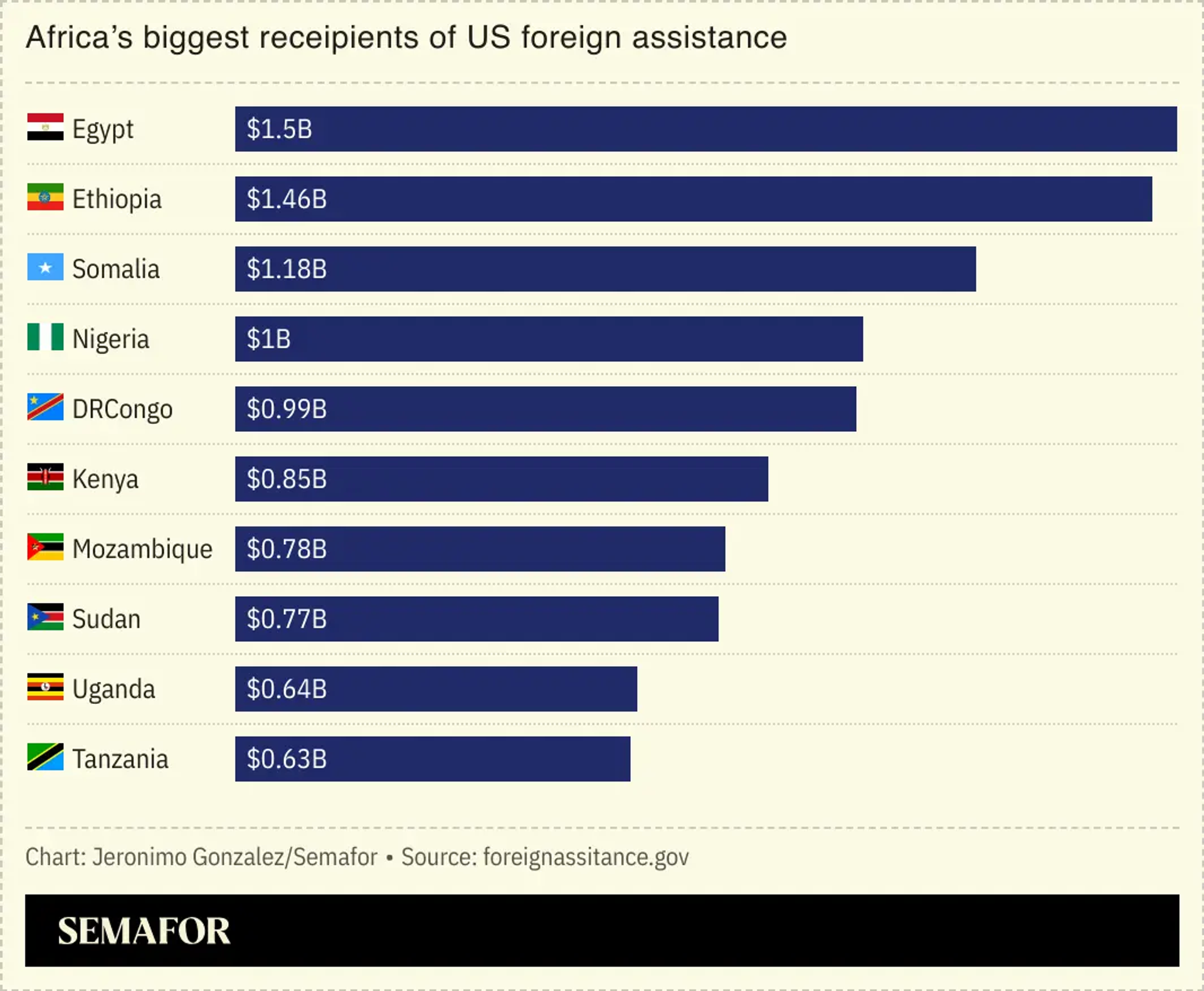The News
African development partners and Washington policy advisers are scrambling to assess the impact of the US Trump administration’s decision to almost completely wind down the operations of its main foreign aid body.
All staff at the US Agency for International Development (USAID) were placed on administrative leave from Friday (Feb. 7), according to a notice posted on its website, with the exception of “mission critical” workers. USAID is expected to cut its staff of 10,000 to about 300, according to multiple reports, with just about a dozen workers left to focus on Africa.
Speaking on condition of anonymity, a veteran development bank executive, who had worked with USAID’s Prosper Africa and Power Africa units, described the moves as “upsetting and irrational.”
Ndidi Nwuneli, CEO of the advocacy group ONE Campaign, said while African leaders are committed to building sustainable pathways, “the disruptions caused by the announcements threaten to reverse historic gains and complicate future progress and partnerships.”
In this article:
Know More

USAID, which has now been folded into the US State Department, managed a budget of up to $50 billion last year, running hundreds of humanitarian and economic developmental projects around the world. It has had a significant impact on African development projects, many of which are now either paused or completely shut due to the funding freeze imposed by a President Trump executive order.
African governments have broadly put on a brave face in the face of the cuts, though South African health officials have acknowledged the important work US anti-HIV aid projects have had in saving millions of lives.
Yinka’s view
The consensus among policy advisors, think tanks, and African government insiders I’ve spoken with is that the shuttering will damage America’s reputation as a reliable partner, even though they say it’s too early to be sure of its impact.
This has more salience today than it might have had about 25 years ago, before China laid the groundwork for a different type of committed developmental partnership with African countries, says Hannah Ryder, founder of policy advisory firm Development Reimagined. That China-Africa model has since been followed more recently by the likes of the United Arab Emirates and Turkey, among others.
Several African leaders have tried to allay panic in their development departments or even suggested, as the former Kenyan president Uhuru Kenyatta did in a viral video, that it was time for their countries take care of their own problems without having to rely on the US taxpayers. But it won’t be that easy at first because so much aid and development infrastructure was put in place by USAID. This means there will likely need to be an overhaul of the global humanitarian and development system which USAID played such an important role in underwriting over the years.
But there could be some progressive outcomes of this major shift. Ryder thinks it will encourage localization and exit strategies to be taken more seriously — a move away from perpetual aid. “For example, it’s totally unsustainable to be relying on imported HIV drugs in our countries — even at low or zero cost,” she notes. “We must push development partners to use remaining aid budgets to build our local pharmaceutical industry.” She also thinks more attention should be paid to the frequent calls by African leaders for more trade and foreign direct investment to support development.
The View From Rwanda
Rwanda was the first country in which Zipline, a drone delivery company, launched its services delivering blood in partnership with local health authorities. It has since worked across five African countries, delivering vital medical supplies to previously difficult to reach places.
Zipline, in a statement, said the US foreign aid cuts were an opportunity to reframe the conversation around global aid. The company said its service has demonstrated how innovative solutions can strengthen healthcare systems and reduce long-term dependency on foreign aid.
Notable
- What is USAID? NBC News explains how it works and what could happen if Trump and Musk shut it down.
- The stop-work order on USAID-funded research has left thousands of people with experimental drugs and devices in their bodies, reports the New York Times.
